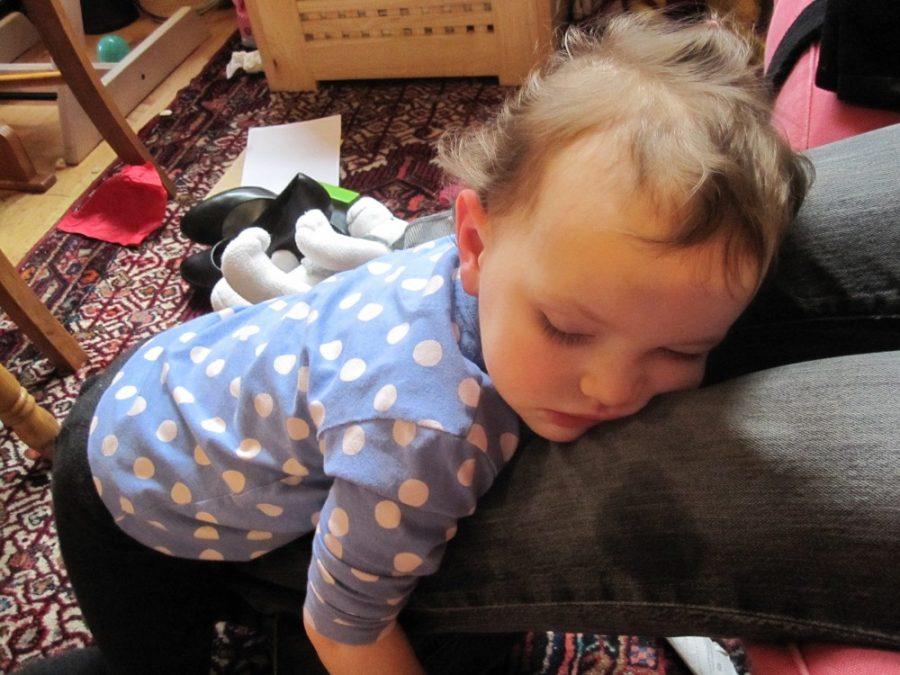Parents know that perhaps the toughest part of having young children is getting them to take their naps. Although those precious few minutes, or hopefully even hours, are crucial for the stability of parental sanity, there might be another, even more useful purpose for those coveted nap times.
According to a recent study conducted at the UA, these naps may be important to the learning abilities of preschool-age children. Preschoolers, defined in this study as being 3 years old, were focused on because, from about 3 years of age on, children tend to nap less during the day.
“We were specifically interested in this age range because this is when the specific transition between napping more and napping less tends to happen for children,” said Michelle Sandoval, a recent UA psychology Ph.D. graduate.
The study, conducted through UA’s on-campus Child Cognition Lab by Sandoval and Rebecca Gómez, the lab’s principal investigator and psychology associate professor, states that children who napped within an hour of learning new verbs were able to retain them better over a 24-hour period after they had napped and had gotten their regular amount of night-time sleep.
The research centered on two experiments in which 39 developing 3-year-old children were grouped into two categories—habitual nappers and non-habitual nappers—based on the number of days per week they normally napped at home.
RELATED: Psychologists learn strategies of teen learning and exploration
There were two parts to the experiment. First, researchers taught the children two new made-up verbs while showing them a video in which the verb corresponded to a full-body movement performed by an actor. Parents were then instructed to either have their children nap within an hour or keep the child awake for at least five hours. “We decided to go to the child’s home just because it made it easier on the parents,” Gomez said, adding “it also made it easier for children to nap afterwards.” The second part involved parents bringing their children to the Child Cognition Lab on campus where they were asked to recall the correct verb using a video of the same body movement with a different actor.
“We chose to use made-up verbs because there was the possibility that certain children would have already been exposed to certain words, and we wanted to make sure we had an even control for both of the experiments,” Sandoval said.
Children who napped within an hour of learning the verbs had better memory recall 24 hours later when they were shown a different video of the same verb movement, regardless of whether they were classified as habitual or non-habitual nappers.
RELATED: The research behind therapy dogs is limited but real
“By the time children are about 3, they have already developed the same sleeping patterns as grown adults, either rapid eye sleep or non-rapid eye sleep. Rapid eye sleep develops into long-wave sleep. Memories and recall are strengthened during the periods of long-wave sleep,” Gomez said.
The researchers think the benefits children get from napping are based in what they call slow-wave sleep. Slow-wave sleep is also referred to as deep sleep and is the phase in which the mind is amplifying and strengthening memory patterns. So children who napped after learning the new verbs were strengthening their mind’s connection to the words and movements from the video.
The second experiment was conducted with a second, different group of 3-year-olds in order to observe how children retained information directly after learning with no napping.
“We found that the recall directly after learning the verbs was very low. The naps taken by the first group really helped them learn and retain what they learned. This showed us that the napping and night-time sleep helped the children’s memory recall overall,” Sandoval said.
Both Sandoval and Gomez will be doing further studies in the field. The research will be ongoing through the Child Cognition Lab, and if any parents are interested in participating in children’s sleep studies, please contact UA’s Child Cognition Lab at 520-626-0278 or childcognitionlab@gmail.com to ask about ongoing studies.
Follow Rebekah Ulmer on Twitter.









